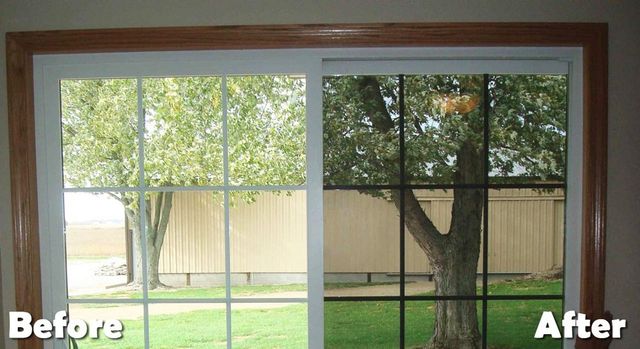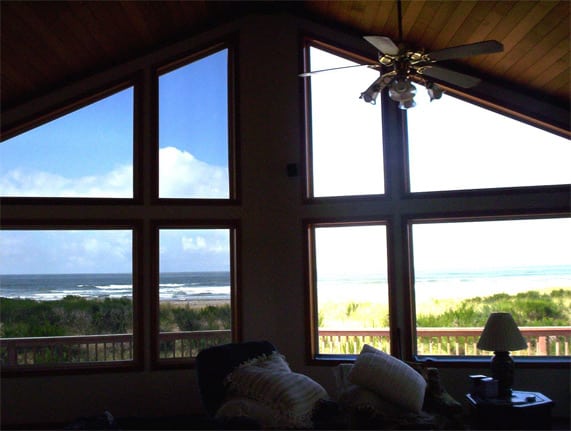Obtain Specialist Suggestions on Picking the Best Residential Window Tint for Your Needs
Obtain Specialist Suggestions on Picking the Best Residential Window Tint for Your Needs
Blog Article
Exactly How Residential Home Window Tinting Boosts Your Home's Energy Performance
Residential window tinting offers an engaging service for home owners seeking to improve power performance within their living rooms. By applying specialized films to home windows, it successfully lowers heat transfer, therefore stabilizing indoor temperature levels and decreasing the requirement for excessive home heating or air conditioning.
Comprehending Window Tinting
Comprehending home window tinting is vital for homeowners seeking to enhance both comfort and energy effectiveness in their home. Residential Window Tint. Home window tinting includes the application of a thin film to the inside or outside surface area of glass home windows. This movie can substantially modulate the quantity of sunshine and warmth that gets in a home, hence affecting interior climate problems
There are various types of home window tinting films available, each with distinctive properties. The effectiveness of window tinting is usually gauged by its Visible Light Transmission (VLT) portion, which suggests just how much light can pass through the film.
Advantages of Energy Performance
Window tinting not just boosts looks however additionally plays a substantial function in boosting energy performance within property spaces. By minimizing heat transfer via windows, colored films develop a more steady indoor climate, which can bring about considerable decreases in energy intake for heating and air conditioning. This power effectiveness converts right into lower energy expenses, giving homeowners with significant lasting savings.

Furthermore, window tinting boosts the convenience of living spaces. By minimizing glow and blocking hazardous UV rays, colored home windows create an even more positive atmosphere, which can result in boosted wellness for residents. The defense against UV rays additionally assists preserve furnishings and flooring from fading, adding to the durability of family items.
Just How Tinting Works
Tinting movies run with a combination of sophisticated materials and innovations designed to regulate the quantity of solar power getting in a home. Primarily made up of polyester, these movies usually integrate metal or ceramic fragments that absorb and show heat. This double capacity allows them to dramatically minimize the infiltration of ultraviolet (UV) rays and infrared radiation while permitting noticeable light to go through.
The effectiveness of home window tinting is measured by its solar warmth gain coefficient (SHGC), which shows just how much solar power is transferred via the window. Reduced SHGC values are more effective as they denote better warmth rejection. Furthermore, home window colors can feature a selection of tones, allowing house owners to tailor their aesthetic preferences while boosting energy effectiveness.
In addition, these films serve as a barrier, preventing heat loss during chillier months by showing indoor heat back into the home. This thermal insulation impact enhances the air conditioning advantages gained during warmer months, adding to a balanced indoor climate year-round. By managing solar power properly, Full Report residential window tinting not just boosts convenience but also plays an important role in reducing energy usage and lowering energy costs.
Selecting the Right Color

There are different kinds of home window films offered, consisting of colored, metalized, and ceramic. Ceramic movies provide outstanding heat control without endangering presence and are highly durable, making them a prominent option.
Visible light transmission (VLT) is one more essential aspect, as it suggests the amount of natural light that can go through the colored glass. Homeowners should select a tint with a VLT that complements their lighting choices while still providing sufficient glare reduction.
Additionally, evaluating the solar warm gain coefficient (SHGC) can aid identify how well a tint can obstruct warmth from sunshine. A reduced SHGC indicates far better warmth control, inevitably improving energy performance.
Setup and Maintenance Tips
Correct installation and upkeep are vital parts in taking full advantage of the advantages of property window tinting. Experts also utilize specialized methods and devices, which can enhance the toughness and effectiveness of the tint.
Adhering to installment, upkeep is vital to lengthen the life of the home window movie. article It is recommended to wait at least 30 days before cleansing the tinted windows to enable the adhesive to treat fully.
Dealing with these concerns promptly can avoid more damage and preserve energy effectiveness. By sticking to these installment and upkeep ideas, property owners can ensure their home window tinting proceeds to provide significant power savings and comfort for years to come.
Verdict
In final thought, domestic window tinting offers as a reliable solution for enhancing power efficiency within homes. By decreasing warmth transfer and blocking dangerous UV rays, window movies contribute to reduce energy intake and enhanced interior comfort. The choice of proper tinting materials, along with appropriate setup and upkeep, better makes the most of these benefits. Inevitably, window tinting represents a sustainable financial investment that not only lowers utility costs yet also advertises a comfortable living atmosphere throughout the year. you can try this out
Home window tinting entails the application of a slim movie to the inside or exterior surface of glass windows. By minimizing warm transfer through home windows, tinted movies create a more stable interior environment, which can lead to significant reductions in power intake for heating and air conditioning.The efficiency of window tinting is gauged by its solar heat gain coefficient (SHGC), which indicates just how much solar energy is transmitted via the window. By managing solar power successfully, residential window tinting not just improves convenience but additionally plays an important role in reducing power intake and lowering utility bills.
By decreasing warmth transfer and obstructing dangerous UV rays, home window movies contribute to lower energy consumption and boosted indoor convenience.
Report this page